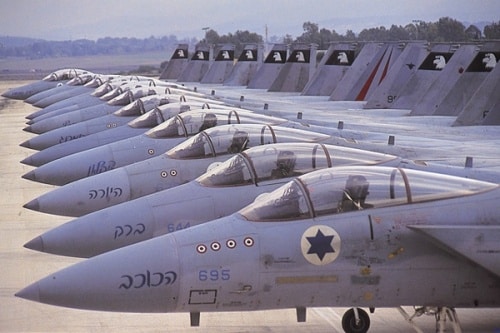
US envoy to Syria James Jeffrey said yesterday that Russia should maintain a “permissive approach” towards Israeli airstrikes in Syria.
Speaking with journalists via a conference call, Jeffrey explained that “in the past Russia has been permissive in consultation with the Israelis about Israeli strikes against Iranian targets inside Syria,” adding that: “We certainly hope that that permissive approach will continue.”
Jeffrey said that Israel has “[an] existential interest in blocking Iran from deploying long-range power projection systems such as surface-to-surface missiles [in Syria]” and “we [the USA] understand this existential interest and we support Israel,” the Times of Israel reported.
Jeffrey’s comments come amid heightened tensions between Israel and Russia after the downing of a Russian military plane over Syrian airspace in September. Syrian President Bashar Al-Assad’s forces allegedly mistook the Russian jet for an Israeli aircraft, having been simultaneously responding to Israeli attacks on targets in Syria’s coastal region of Latakia.
The incident sparked a diplomatic row after Russia’s Defence Ministry claimed that the Israeli jets carrying out the strikes in Latakia used the Russian plane as cover to allow them to approach their targets without being hit by Syrian anti-aircraft fire. Russia placed the blame for the incident – in which 15 Russian personnel died – squarely with Israel, calling its actions “irresponsible” and accusing it of not giving Moscow sufficient notice of the attack.
The Israeli army was forced to open an investigation into the incident, dispatching the Air Force Chief to present its findings in the Russian capital. Only ten days after the incident, Russia decided to act on its long-postponed decision to deliver S-300 missiles to Syria to act as a sophisticated anti-aircraft system.
In October the former US Defence Attaché to Russia – Brigadier General Peter Zwack – said that Israel would destroy the S-300 system, explaining: “The time when Israeli planes target [the] S-300 defence system owned by the Syrian army is coming. This is an important issue for Israel. It will not remain silent”.
“Based on my knowledge of the Israelis, they will tell Russia that the defence system is owned by Syria and then they will do their best to strike it and take it out of service,” he added.
Israeli-Russian relations have been strained in the months since the downing of the plane. On Tuesday, Israel’s public broadcaster Kan reported that a meeting scheduled to take place next week in Paris between Israeli Prime Minister Benjamin Netanyahu and Russian President Vladimir Putin had been cancelled. The meeting was intended to signal that relations between Tel Aviv and Moscow were still strong in spite of recent tensions, but its cancellation will be interpreted as evidence to the contrary.
Israel, Russia and the US have been engaged in the Syrian Civil War – which has been ongoing since 2011 – in support of the various factions operating on the ground. Russia has openly supported the Assad regime, while the US has supported a host of opposition groups and the Free Syrian Army (FSA) in their bid to overthrow the regime. Despite officially declaring neutrality, Israel has engaged in numerous air strikes across Syria and cited concerns about the presence of Iranian forces in the region as justification.
Reprinted with permission from Middle East Monitor.

